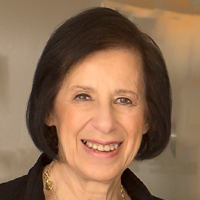
Perhaps one of your clients has been asked by someone to be the executor of his or her estate upon death. Is that a good idea?
I believe people preparing their wills should notify someone whom they’re asking to take on such a time-consuming task. The executor, appointed to administer the last will and testament of a deceased person, has the main duty of carrying out instructions to manage the affairs and wishes of the deceased. With that in mind, being assigned this responsibility should never come as a surprise.
If taking on the task is not desired — the person named can abstain — this may result instead in the court appointment of an executor. This is often an attorney who does not know the testator, the legal term for the individual who makes the will.
Being an executor is serious business, not for the faint-hearted, and it requires someone reliable. The duties may vary a little from state to state. The executor may be paid a fee, to be determined by the state, usually at the end of the tasks. Here’s a summary of responsibilities that may be assigned to an executor that you can share with your client considering this charge.
A heavy workload
First, the executor (“executrix” as the woman filling the role) must submit the will to a court that issues the paperwork that allows the executor to take control of the estate. The executor must identify and protect all the assets in the estate. Appraisals are typically part of the process. These can include assets held in bank safe deposit, investment accounts and bank accounts. Usually, these assets are used to pay the decedent’s bills. Funeral costs are often included in the outstanding debts.
In many cases, the executor will appear before a probate court judge to present balance sheets, discuss distribution of assets and explain any issues that are slowing down the process. The court sets timelines to complete this work. All beneficiaries should be notified of most of these steps. If there are disagreements among the beneficiaries, the executor may be forced to make decisions that will not please everyone.
Recently, I heard an experienced estate attorney say that a family can choose to “punish” one of its children by making him or her an executor. While he was joking, at our firm we do know a person accused by her four sisters of taking personal items from their parents’ house while she served as the executrix of the parents’ estate. While this seemed to me to be unlikely, years later the siblings’ relationship has never been completely repaired.
Serious considerations
I asked a New York estate attorney, Randy Perskin, to help think through the pros and cons of accepting the role of executor. Randy, who’s a relative of mine, suggested we consider the following points:
Pros
- As an executor, you will be fulfilling a loved one’s wishes and accepting the trust placed in you – this seems especially true with families and meaningful friendships.
- You can involve the family in finding solutions and strengthening ties, whether the decedent left the same amount to each beneficiary or left what he or she thought each beneficiary might need. You can help the family by explaining that the deceased cared for each of them uniquely.
- You can develop new skills working with attorneys (hiring one is highly advisable), accountants and real estate professionals, as well as with financial institutions, as needed. Note that you may be asked multiple times to submit qualifying papers, such as death certificates and powers of appointment.
- You can be paid for your services and reimbursed for your expenses (so, remember to keep track of your time and your tasks).
- You will have control over small decisions and large ones. Distribution of assets will be subject to the will; you can see that this happens correctly.
Cons
- Prepare for the process to take a considerable amount of time, possibly even more than you expected. You will marshal assets, debts and real estate, deal with beneficiaries and likely clean out a home before its sale. You will interview professionals and select those you want to work with.
- The executor is a fiduciary of the court, so may be held liable for any actions taken. There may be legal consequences.
- Stress is a given. Of course, this process begins soon after a death, when emotions are raw. Still, personal belongings and estate obligations have to be dealt with. The family may be unmoored, and some beneficiaries agitated, but the executor should remain above any emotional involvement. A good executor will avoid becoming engulfed in beneficiaries’ disagreements and continue to act in a clear and calm manner while performing agreed-upon duties.
- As a person with control, you can be a target for angry friends and relatives if beneficiary or family conflicts arise.
- As executor, under some circumstances you can be liable for debts, misappropriation or incorrect distribution of assets.
Reasons for accepting this charge
If your client has a close relationship with the testator, believes he or she can carry out the directives in the will in an expeditious manner and knows what the deceased’s values and wishes were, that person can make a positive difference.
Probate can take one to two years or longer if there are complicated issues to address, such as disputes to settle, assets to identify, and/or real estate to maintain prior to sale.
According to Perskin, “The primary rewards of being an executor are the satisfaction of carrying out a loved one’s wishes and ensuring the safe transfer of assets to beneficiaries.”
A suitable executor should have some understanding of financial affairs, insurance issues and real estate matters, while also seeking the help of professionals, says Perskin. Hopefully, the executor can absorb conflicting points of view and resolve arguments. Trust is an important factor as well. Naming someone generally able to remain cool under stress can be a good choice.
Conclusion
Perskin advises assessing the nature of your client’s relationship with the testator as well as their personal limitations, such as time constraints or a lack of understanding of the duties involved, when advising them about becoming an executor.
When time allows and the death is not sudden, suggest that a future executor have a long conversation (or a series of conversations) with the testator while he/she is alive about the assets in their estate, any foreseen issues potentially relating to them and any known disputes among beneficiaries. This can help an executor prepare for the responsibilities ahead.
Additional Reading: How Much of Planning Should be Math?
Perhaps the executor also can find out where important information is stored while there’s time. Some years ago, when my mother died, I served as executor of her estate. She often pointed to a file cabinet and told me everything I needed was in there. I did not want to think about it, but when she died my task was much easier because I knew where to find her important papers.
My advice to clients facing this dilemma is to consider geographic and other limits. Flying across the country to sell a house is not for everyone. Although many tasks can be conducted from afar, others demand your clients’ in-person presence. It is likely that travel to the venue of the deceased will be required many times.
Age is also a consideration. For example, a person who chooses their college roommate as their executor may eventually need to change who fills this role as the parties age. That’s why people often choose someone from the next generation for this responsibility.
Prepare clients taking on the role of executor for the unexpected and tell them to be ready to take appropriate action — with the advice of the estate attorney and the sense that they have done their best to carry out the final wishes of the testator.
Karen Caplan Altfest Ph.D., CFP, is a principal advisor at Altfest Personal Wealth Management. She helps many of the firm’s clients with a variety of investment and financial planning issues and specializes in helping women clients and widows. Karen’s Financially Savvy Woman programs, including the Women’s Financial $paTM, are popular with clients. Her focus is to educate and empower women.







